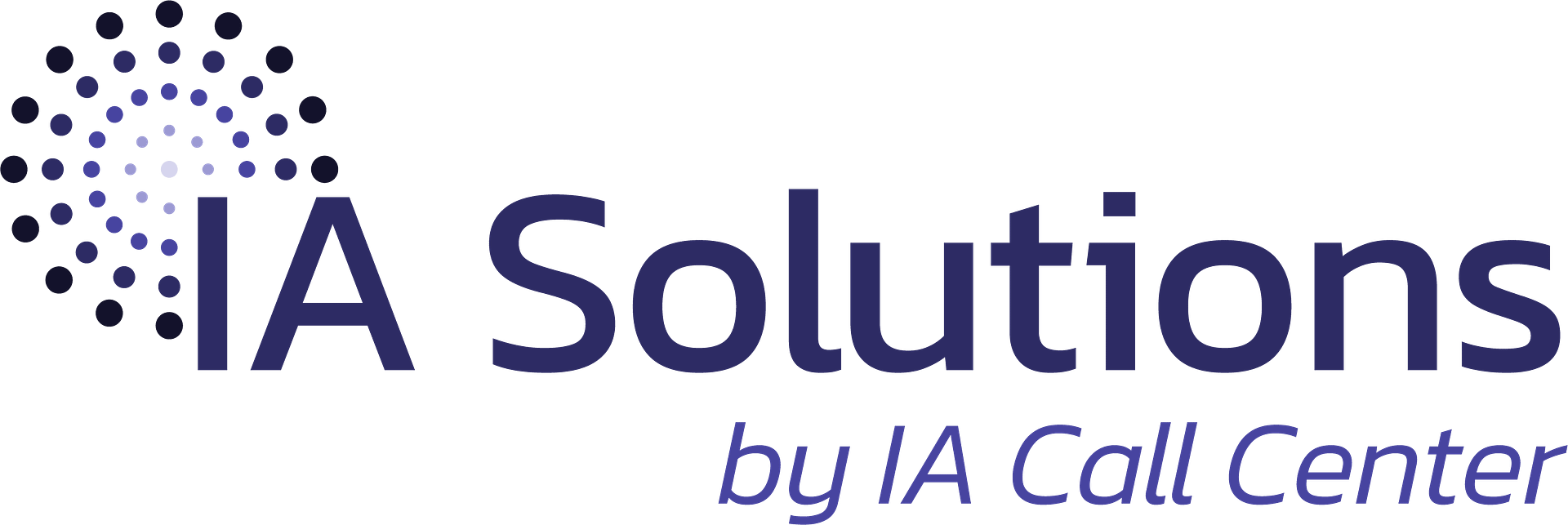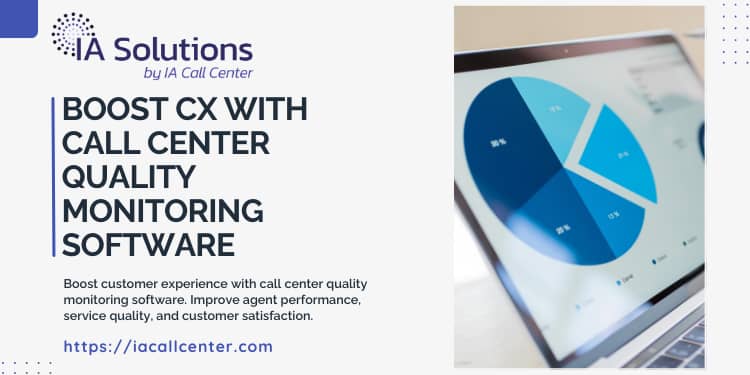In today’s business landscape, the way a company interacts with its customers over the phone can significantly shape its reputation and success. Call centers are often the primary point of contact, making the quality of these interactions incredibly important. This is where call center quality monitoring software becomes a key tool. It helps businesses keep an eye on how their agents are performing and how customers are being treated. With this software, businesses can improve customer service, creating happier customers and a stronger, more successful company.

Key Takeaways
- Call center quality monitoring software helps improve customer service by tracking agent performance and identifying areas for improvement.
- Key features like call recording, speech analytics, and real-time monitoring allow for better agent coaching and customer interaction analysis.
- Using this software can lead to increased efficiency, better agent performance, and improved customer satisfaction, which are important for business growth.
How Call Center Quality Monitoring Software Enhances Customer Experience
In today’s business landscape, the call center is often the primary point of contact for customers. This makes the quality of interactions there incredibly important for shaping overall customer perception and loyalty. Call center quality monitoring tools provide a structured way to assess and improve these interactions, directly impacting how customers feel about a company.
These systems allow for the detailed review of customer calls. By listening to actual conversations, managers can pinpoint what’s working well and where agents might need more support. This isn’t just about finding mistakes; it’s about understanding the customer’s journey from the agent’s perspective. For example, if many customers express confusion about a new product, that’s a clear signal that the agent training or available information needs an update. This kind of insight helps to streamline processes and make things easier for everyone involved.
Here’s how these tools make a difference:
- Identifying Training Gaps: By analyzing calls, specific areas where agents struggle can be identified, leading to targeted training that improves their skills and confidence.
- Ensuring Consistency: Quality monitoring ensures every customer gets consistent service, no matter which agent they talk to.
- Resolving Issues Faster: Understanding common customer problems through call analysis allows for quicker development of solutions and better first-call resolution rates.
- Personalizing Interactions: Insights from monitored calls can help agents tailor their approach to individual customer needs, making the experience feel more personal.
Implementing a robust quality monitoring system means you’re not just reacting to customer feedback; you’re proactively shaping positive experiences. It’s about building a consistent, helpful, and efficient service that customers can rely on.
Ultimately, using customer experience software focused on call center quality is a direct investment in customer satisfaction. When customers feel heard, understood, and efficiently helped, it significantly boosts their overall experience with the brand. This, in turn, leads to greater retention and positive word-of-mouth, helping to boost customer experience across the board.
Key Features of Call Center Quality Monitoring Software for Better Service
When you’re looking to improve how your call center handles customers, the right software makes a big difference. These quality monitoring tools aren’t just about checking boxes; they actively help your team do a better job. Think about features that give you a clear picture of what’s happening on every call.
One of the most helpful things is real-time feedback. This means supervisors can listen in on calls as they happen and give agents tips right then and there. It’s like having a coach on the sidelines, helping the player adjust their game before it’s too late. This immediate guidance can stop small issues from becoming big problems for the customer.
Then there’s sentiment analysis. This uses technology to figure out how a customer is feeling during a conversation. Is the customer getting frustrated? Are they happy with the solution? Knowing this helps agents tailor their approach. It’s not just about what’s said, but how it’s said and how the customer is reacting.

Here are some other important features to look for:
- Call Recording and Tagging: Lets you save and categorize calls so you can easily find specific interactions later for review or training.
- Customizable Scorecards: You can set up your own evaluation forms to match what’s most important for your business, whether it’s politeness, problem-solving, or following specific procedures.
- AI-Powered Insights: These tools can sift through lots of call data to find trends you might miss, like common customer complaints or reasons for repeat calls.
- Omnichannel Monitoring: This means you can check quality across different ways customers contact you, like phone, chat, or email, making sure the service is consistent everywhere.
Using these tools helps you see exactly where your team is doing great and where they might need a little extra support. It’s about making sure every customer interaction is a positive one, which builds loyalty and keeps people coming back.
Improving Agent Performance with Call Center Quality Monitoring Software
Call center quality monitoring software is a big help when you want to make your agents better at their jobs. It’s not just about listening to calls; it’s about using what you hear to actually help people improve. Think of it like a coach for your team. You can see how long calls are taking, if customers are getting their problems solved the first time they call, and how happy customers are overall. This gives you a clear picture of who’s doing great and who might need a little extra guidance.

The real power comes from using this data to give specific feedback. Instead of just saying “do better,” you can point to actual examples. For instance, you might notice an agent consistently struggles with explaining a new product feature. The software can flag these calls, allowing a supervisor to sit down with the agent and go over that specific part of the conversation, maybe even role-playing the interaction. This kind of targeted coaching makes a difference.
Here’s how it helps agents get better:
- Identify Strengths and Weaknesses: See which agents excel at certain tasks and which ones need more practice.
- Provide Specific Feedback: Use call recordings and analytics to show agents exactly where they can improve.
- Track Progress Over Time: Monitor how agents are doing after receiving coaching, so you know if the training is working.
- Boost Confidence: When agents see they’re improving and getting support, they tend to feel more confident in their roles.
It’s important to remember that the goal isn’t just to find mistakes. It’s about creating a system where agents can learn and grow. When agents feel supported and see a clear path to improvement, they’re more likely to stay engaged and perform at a higher level. This directly impacts how customers feel about your company.
This software helps to improve call center performance by making the feedback loop tighter and more useful. You can see trends across your whole team, too. Maybe a lot of agents are having trouble with a particular customer question. The software can highlight this, so you can create a better script or provide team-wide training on that topic. It’s all about using the information you gather to make smart changes that benefit both your agents and your customers.
Driving Efficiency Using Call Center Quality Monitoring Software
Quality monitoring software really helps streamline how a call center operates. Think about it: instead of just guessing what’s going on, you get actual data. This data shows you things like how long calls are taking, or if customers are getting their problems solved the first time they call. This kind of insight lets you spot bottlenecks and figure out where time is being wasted.
It’s not just about finding problems, though. The software takes care of much of the repetitive, time-consuming work. Things like scoring calls or checking for compliance can be handled by the system, freeing up supervisors to actually coach agents. This means less time spent on paperwork and more time spent on making the team better.
Here’s a quick look at how it helps:
- Automates repetitive tasks: Scoring calls, checking for compliance, and generating reports can all be done by the software.
- Identifies inefficiencies: You can see which processes are slow or causing delays.
- Supports real-time adjustments: Supervisors can see what’s happening live and make changes on the fly.
The ability to analyze interactions means you can also personalize customer service more effectively. Understanding what customers need and how they feel helps tailor solutions, which can prevent repeat calls and keep customers happier.
By using these tools, you can get a clearer picture of your operations. This clarity is key to making smart decisions that save time and money. For instance, knowing your average handle time and first contact resolution rates helps you manage resources better. You can even use this information to plan staffing more effectively. Success comes from working smarter, not harder—and that’s exactly what this software delivers. You can find platforms that integrate automated QA and AI-powered call scoring to get a single view of performance, which is a big step towards better operations. See how call quality monitoring tools can help analyze agent performance.
Choosing the Right Call Center Quality Monitoring Software for Long-Term Growth
Picking the right call center quality monitoring software is a big deal for your company’s future. It’s not just about checking boxes; success means using a tool that truly supports your team and sustains customer satisfaction. You want something that fits your specific needs now but can also grow with you. Think about what your call center does best and where it needs the most help. Does your team struggle with sticking to scripts, or is it more about how they handle tricky customer questions? The software should help you pinpoint these things.

When you’re looking around, pay attention to a few key things. First, how easy is it to use? If it’s too complicated, your supervisors and agents won’t use it effectively. Second, what kind of reporting does it offer? You need clear, actionable data, not just a bunch of numbers. Look for software that can track things like first-call resolution rates, average handling times, and customer satisfaction scores. These metrics tell you a lot about how your team is doing. Also, consider if the software can integrate with your existing systems. You don’t want another siloed tool.
Here are some points to consider when making your choice:
- Ease of Use: Is the interface intuitive for both supervisors and agents?
- Reporting Capabilities: Does it provide clear, actionable insights into agent performance and customer interactions?
- Integration: Can it connect with your current CRM or other business tools?
- Customization: Can you tailor evaluation forms and workflows to your specific needs?
- Scalability: Will the software support your growth as your call center expands?
It’s also smart to think about how the software handles compliance. In today’s world, keeping customer data safe and following regulations is super important. Good monitoring software can help flag calls that might be going off track or missing key compliance points. This saves you from potential headaches down the road. For example, Talkdesk’s AI-driven solutions can help with this by automating parts of the quality management process.
Don’t just go with the cheapest option or the one with the most features you’ll never use. Focus on what will genuinely improve your team’s performance and, most importantly, your customers’ experience. The right tool is an investment that builds customer loyalty and strengthens your business.
Ultimately, the goal is to find a partner in your software choice, something that helps you continuously improve. It should make your job easier, not harder, and lead to better outcomes for everyone involved.
Picking the best call center quality tracking tool is key for your business to grow over time. It helps you make sure your team is doing a great job and keeps customers happy. Want to learn more about how the right software can help your company succeed? Visit our website today to discover the solutions that fit your needs.
Putting It All Together
So, we’ve talked a lot about how important it is to keep an eye on how your call center is doing. Using the right software for quality monitoring really does make a difference. It helps your agents get better at their jobs, makes customers happier, and keeps things running smoothly. Think of it as a way to make sure everyone’s on the same page and doing their best work. When you get this right, customers notice, and that’s good for business in the long run. It’s more than ticking boxes—it’s about strengthening relationships with the people who rely on you.
Frequently Asked Questions
What is call center quality monitoring software?
Think of it as a tool that helps businesses keep an eye on how their customer service agents are doing. It looks at calls and other customer chats to see what’s working well and what could be better. This helps companies make sure their customers are happy and that their service is top-notch.
How does this software help improve customer service?
This software helps by showing managers how agents are performing. They can see if agents are solving problems quickly and if they are being polite and helpful. By spotting areas where agents might need more training or support, the software helps everyone get better at helping customers, leading to happier customers.
Can this software help agents do their jobs better?
Absolutely! The software gives agents feedback on their calls, pointing out what they did well and where they can improve. It’s like having a coach who helps them learn new skills and become more confident. When agents are better trained and more confident, they can provide much better service to customers.












